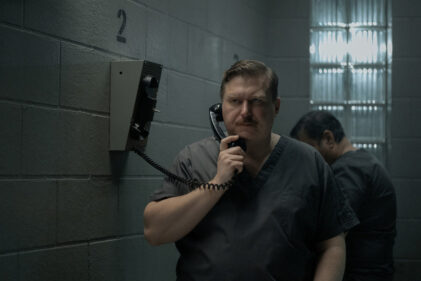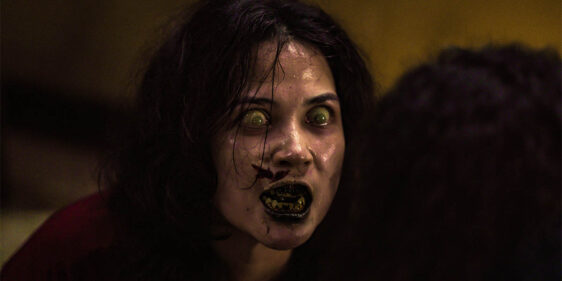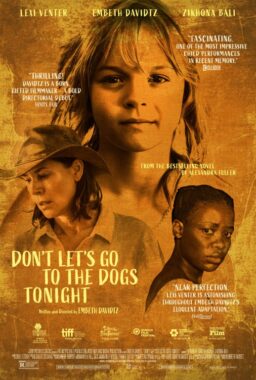The Sundance premiere of “Life Itself” was a powerful experience for filmmakers, subjects and viewers alike.
Director Steve James‘ adaptation of Roger Ebert’s memoir inspired laughter in scenes that recounted the excess of Ebert’s drinking years and his rivalry with his TV partner Gene Siskel, and tears during its finale, which portrays Ebert’s final struggle with cancer. During a scene of Ebert’s wife Chaz describing her husband’s death as “a wind of peace” followed by long silence in the room where he passed away, the only sound in the theater was the whir of the projector up in the booth.
Many viewers were visibly (and audibly) shaken by the film, not just because of the graphic footage of Ebert’s treatment—including the critic suctioning the throat cavity exposed by the removal of his jaw in 2006—but also because “Life Itself” contained so many revelations.
Among other things, the film reveals that Ebert never got to say goodbye to Siskel, who died in 1999 of complications from a brain tumor; that he signed a Do Not Resuscitate order in the hospital without telling his wife; and that he first saw Chaz at an Alcoholics Anonymous meeting. (In the book, Roger Ebert writes about meeting Chaz in a Chicago restaurant after an introduction by advice columnist Ann Landers, but doesn’t mention that he first saw her in AA.)
During the post-screening discussion, Chaz Ebert and other members of the panel confirmed that Ebert urged the director to be as “candid” about him as possible, particularly about his medical treatment—a reaction to Siskel’s having kept his own illness a secret from almost everyone, including his children.
As James told RogerEbert.com, the Eberts gave him final cut and did not pressure him to excise unflattering or upsetting material, including a wrenching argument between the Eberts that was captured on camera.
“During Roger’s entire career as a film critic,” said Chaz during the post-screening discussion, “he said that the films that really touched him the most were the ones where you really saw people warts-and-all, when you had a more authentic experience. And he said that if he was going to participate in this film, he couldn’t change the rules for himself. We had to allow full access. And in fact, Roger gave me a note to give to Steve, which said ‘While you’re editing this film, imagine that I’m standing over your shoulder telling you: ‘Show the man, not the icon.””
The Siskel-Ebert rivalry continued tonight, through their spouses.
“Gene would’ve thought the documentary was a comprehensive and beautiful portrait of a wonderful man,” Siskel’s widow Marlene Iglitzen told James during the discussion afterward. “Of course, he would’ve wanted to be in the film a little more.”
“Marlene, I want to thank you for being open and honest in the film,” Chaz said, “but as an Ebert to a Siskel, Gene was not more elegant than Roger.”
After the crowd’s laughter died down, Iglitzen deadpanned, “It’s your night, Chaz.”
The theater was packed with festival attendees, people associated with the production, and donors to the movie’s crowdfunding campaign. “Life Itself” was streamed online for donors as it made its physical debut in Park City, a first.
The night was fraught with nostalgia, mourning and celebration before a frame of “Life Itself” had appeared onscreen. In the half-hour preceding the premiere, attendees shared stories about how Ebert had inspired or influenced them.
“I’ve known of him as a movie critic, and I remember watching the show on TV as a kid and it was a side that I wasn’t expecting,” said Park City resident Michelle Doilney, “and I wanted to see a little bit more of the Roger Ebert that is different from what I saw on the television as a kid.”
“I’ve been a critic for almost twenty years and wrote a master’s degree thesis in which I have a chapter based on a Roger Ebert review,” said Jason Gorber of TwitchFilm. “I flew to Sundance to see this documentary.”
While introducing “Life Itself,” Steve James teared up recalling how his documentary “Hoop Dreams” premiered at this
same theater twenty years ago, after Siskel and Ebert broke critical protocol and gave the movie a rave review even though it had no distributor and had not premiered yet.
James trailed off at the end of his story, and covered the side of his face as he walked off the stage.
_____________________________________
This story was written by Matt Zoller Seitz from reporting by RogerEbert.com contributors Simon Abrams, Sam Fragoso and Brian Tallerico in Park City.










